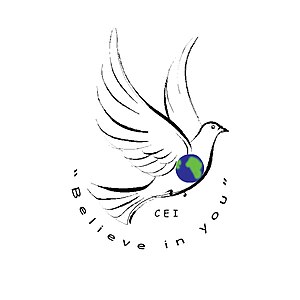
In 1996 Daniel Goleman
wrote his groundbreaking book "Emotional Intelligence". His
exhaustive research had shown him that success in all parts of our lives is
based more on our ability to handle emotions than on our intellectual capability or
our physical strength.
People with high Emotional Intelligence can
understand emotions – their own and other people’s, They can make their
emotions and their understanding help them to empathise with others, to
understand them and to handle their emotions. For example, they are much less
likely to be overwhelmed by someone bursting into tears,
People with high EQ are generally open and pleasant
to be around. They tend to pick up and
understand those little non-verbal messages we send with body language, posture
and tone of voice.
In his book, Daniel
Goleman says, "People who cannot marshal some control over their emotional
life fight battles that sabotage their ability for ...clear thought."
Our emotional skills have
a direct and important bearing on our relationships with others. If we can
understand our feelings, where they come from and how to properly express them
we are more likely to maintain healthy family relationships and
friendships.
To sustain a relationship
with someone else we need to be able to control our emotions, communicate our
feelings in a constructive manner and understand their feelings. So how do we develop emotional
intelligence?
We need to learn
- To understand our own emotions.
- To develop self-awareness
- To recognize and acknowledge feelings as they happen.
- How to manage our emotions and not be constantly battling feelings of gloom and distress.
- Emotional self-control and the ability to delay gratification.
- To recognize and acknowledge emotions in others
- To develop empathy.
- To be attuned to what others want or need.
We need to develop our emotional
intelligence so that we are capable of healthy relationships.
If you would like to know more about emotional intelligence and how it can help
you at work as a manager go to our sister site
WiseWolf Talking– Leadership, Management, Career and Personal Development . If you would like to know what emotional
intelligence might mean for your job search go to WiseWolf Leaving the PublicSector
If you would like to read Dr Goleman’s book
click on the picture link below.

Wendy Mason is a Life and Career Coach. She helps people have the confidence they need to be successful at work and to change career. You can email her at wendymason@wisewolfcoaching.com or ring ++44(0)2084610114


Fascinating. An awful lot of misery comes into the workplace via people with poor EQ.
ReplyDeleteIf everyone mastered what you set out above, I would have no work!
Hi Annabel
DeleteThanks for your comment - yes that is quite true. But as I've mentioned in the buddy post on WW Leaving the Public Sector some of the big companies like Microsoft are waking up to that. I wish everyone had to do an EQ test before they became a manager